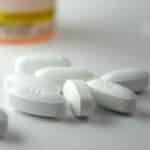Is Ritalin (Methylphenidate) Addictive?
- Why Ritalin Can Be Addictive?
- Reasons for Abuse
- Long-Term Effects Of Addiction
- Ritalin Addiction Treatment
Ritalin, a brand-name stimulant medication containing the drug methylphenidate, has important medical applications as a first-line treatment for attention-deficit hyperactivity disorder (ADHD) and narcolepsy.
However, this potent prescription drug can also cause serious mental and physical harm, including physical dependence and drug addiction.
Why Ritalin Can Be Addictive
Methylphenidate blocks the reabsorption of the neurotransmitters norepinephrine and dopamine in the brain, increasing central nervous system activity and triggering an addictive euphoria in high doses, similar to the illicit stimulant drug methamphetamine.
This euphoria can quickly kick off a brutal feedback loop, building behavioral links between the act of taking the drug, the pleasure of the high, the pain and discomfort of coming back down off the drug, and an intense desire or compulsion to get high again.
Signs Of Ritalin Addiction
External signs of Ritalin abuse and addiction include:
- taking more Ritalin than prescribed, or taking it more often than prescribed
- taking increasing amounts over time
- spending increasing amounts of time seeking, using, or recovering after using Ritalin
- experiencing cravings or urges to use Ritalin
- neglecting personal responsibilities at home, work, or school
- knowingly continuing to use Ritalin despite it causing health issues, financial stress, or damaged relationships
- no longer taking pleasure from one’s passions or non-drug sources
- experiencing withdrawal symptoms if one does stop taking Ritalin
- withdrawing and isolating from family, friends, and others not involved in drug use
- uncharacteristic irritability, defensiveness, mood swings, and deceit
- disrupted sleep schedule
- drug paraphernalia
- neglecting personal hygiene, nutrition, and self-care
- showing physical signs of drug use, including track marks and skin infections (injection) or nosebleeds and sinus infections (snorting)
Why Ritalin Is Abused
The FDA and DEA jointly classify Ritalin and other methylphenidate-containing medications, including Concerta, as schedule II controlled substances with a high potential for abuse as well as physiological or psychological dependence.
This high potential for abuse is reflected in real-world misuse of Ritalin and other prescription stimulants like Adderall, as these drugs are abused for a variety of different reasons.
To Get High
Some people take larger doses of Ritalin, or other ADHD medications, to get high. They may also crush Ritalin tablets or capsules and inject or snort the powder to increase the speed and intensity of the drug’s effects.
In cases of Ritalin addiction, this abuse often occurs in prolonged cycles of binges and crashes, which can take a severe physical and mental toll.
Performance Enhancement
Others, primarily high school or college students, take Ritalin to boost their wakefulness, energy, or concentration. This is likely in hopes of improving athletic or academic performance, or promoting unsafe weight loss.
Long-Term Effects Of Ritalin Addiction
Substance abuse and addiction are serious issues that can have devastating long-term effects, whether a person uses illicit stimulant drugs like cocaine or methamphetamine, or prescription amphetamines.
Long term side effects of Ritalin addiction may include:
- heart and lung injuries and injuries to other internal organs
- high blood pressure and increased risk of heart attack, stroke, and sudden death
- increased risk of a Ritalin overdose
- malnutrition
- sleep disorders
- anorexia and weight loss
- psychosis (hallucinations, delusions, and paranoia)
- brain damage, mental health deterioration, and development of mental disorders
- scarring, abscesses, and infections if injected
- nasal tissue damage and dysfunction if snorted
- severe dependence and withdrawal symptoms
Symptoms Of Ritalin Withdrawal
Symptoms of discontinuing Ritalin after prolonged use can include:
- loss of focus
- irritability
- fatigue
- hyperactivity
- mental health change
- mood swings
- dizziness
- sleep disturbances
- changes in heart rate
- changes in blood pressure
Ritalin Addiction Treatment
A variety of different addiction treatment options have been developed to help those who struggle with problematic stimulant use.
Generally, substance use disorder treatment begins with medical detox, a service designed to help you manage Ritalin withdrawal symptoms safely as you move through the discontinuation process.
After this, personalized inpatient or outpatient treatment programs can begin, focusing on treatment elements such as:
- individual or group counseling
- behavioral therapy
- peer support
- education and career services
- contingency management
- aftercare support
To find out if our outpatient services will work for yourself or a loved one, please contact Northeast Addictions Treatment Center today.
Sources
Written by
Northeast Addition Editorial Team
©2024 Northeast Addition Center | All Rights Reserved
This page does not provide medical advice.





